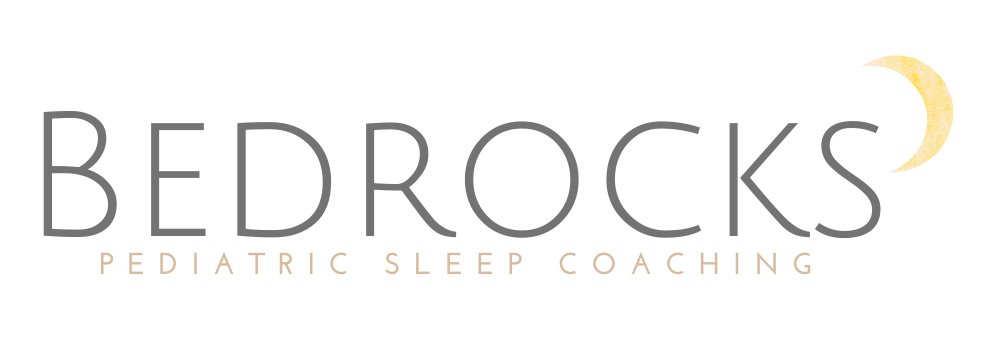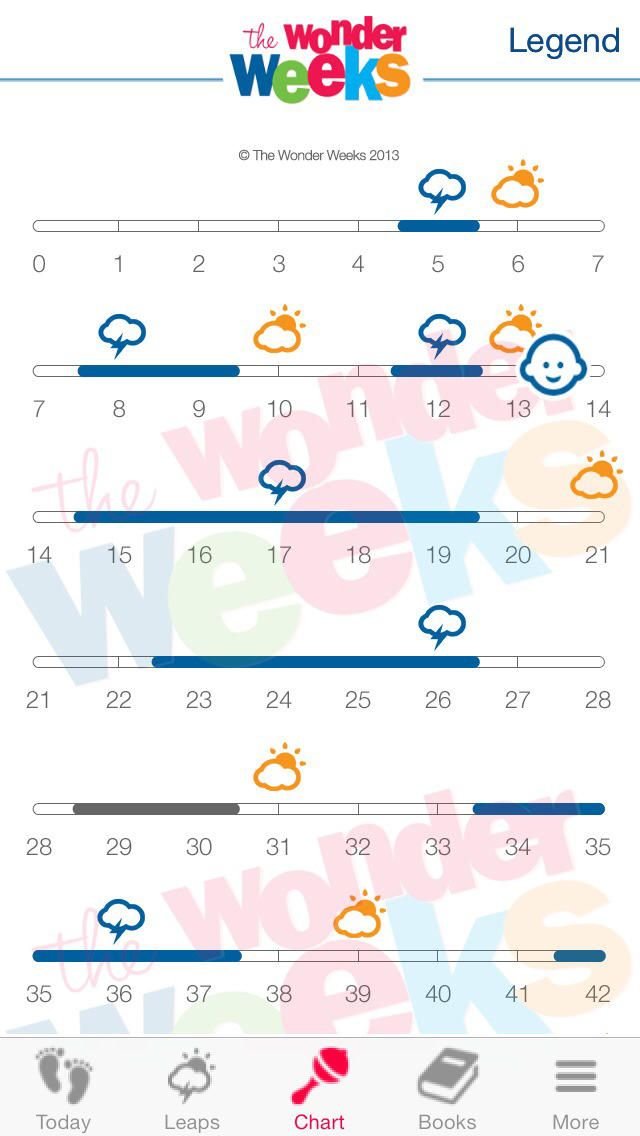Why I Don’t Believe in “The Wonder Weeks”
“My 6-month-old is waking up every 1-2 hours at night, I’m exhausted, do you think they’re in a leap?”
I get questions like this often during my free sleep chats or my Friday Q & A’s on Instagram.
For those who aren’t familiar, a “leap’ basically refers to a developmental milestone. This term came from a book called, “The Wonder Weeks’, written by Dutch husband and wife, Dr. Hetty van de Rijt and Dr. Frans X. Plooij in 1992. The basic premise is that babies go through 10 age-related changes - or “leaps” - during their first 20 months of life. The book states that “during these leaps, a baby cries more, is clingier and crankier, sleeps worse (or hardly at all) and eats less.”
Fast forward a couple decades and the book became an app. As a new mom in 2017, you better believe I was checking my Wonder Weeks app on the daily. And I was in good company. Millions of parents worldwide use this app to keep track of their baby’s milestones and be “warned” about when leaps would occur.
But should they?
While the concept of wonder weeks, which suggests predictable developmental leaps in infants, can be intriguing and provide some helpful guidance, it's important to approach it with a critical mindset.
Here are a few reasons why wonder weeks may not always be reliable:
1. Individual Differences
Take it from a twin mom - every baby is unique and develops at their own pace. While the wonder weeks propose certain milestones for specific weeks, it's essential to remember that not all babies will follow this exact timeline. Developmental patterns can vary significantly from one child to another.
Case in point: my boy twin walked at 9 months, my girl twin at 14 months.
I’m not saying that both cognitive and physical developmental milestones can’t affect sleep - they certainly can and do! But the degree to which sleep is affected varies greatly from child to child and is largely dependent on their sleep habits before the milestone occurs and how they are supported during the period of time when sleep is disrupted.
Milestones that affect sleep include the 4-month-regression, rolling, sitting, standing, walking, and peaks of separation anxiety (usually starting after 8 months). For example, Wonder Weeks states that separation anxiety peaks at 29 weeks which is so incredibly specific and, in my experience, inaccurate. My clients often see separation anxiety peak at some point between 12-24 months.
If good sleep is the goal, parents should focus less about inevitable milestones and more about teaching independent sleep skills.
Babies with independent sleep skills are less affected by these developmental milestones.
2. Inconsistent Research
Some experts argue that the research supporting wonder weeks is limited and lacks rigorous scientific evidence. The studies conducted on this topic have often been criticized for their small sample sizes, self-reported data, and potential biases.
One of Dr. Plooij’s doctoral students conducted her own research studying human babies (the wonder weeks was based on observations of mother and baby chimpanzees) to see if she could confirm the 10 strictly timed leaps in The Wonder Weeks. Not only did the results of her study fail to support the 10-period pattern, but Dr. Plooij tried to stop her from releasing these findings! A controversy ensued and he ended up being fired from his position! That’s pretty sketchy if you ask me!
Remember, it's always important to rely on data from multiple sources when assessing developmental milestones.
3. Overgeneralization
The wonder weeks theory tends to generalize developmental leaps across all infants. However, it's crucial to remember that development can be influenced by various factors, including genetics, environment, and individual experiences. Therefore, it's not always accurate to assume that all babies will go through the same leaps at the same time.
In my sleep consulting, I find that by generalizing long periods of fussiness or sleep issues as a “leap”, parents often make their situation worse. The true cause of the sleep disturbances could be a health issue (not as common) or a problematic sleep prop (much more common). Using a leap as a scapegoat for sleep issues can mean waiting a long time to actually address the issue and get to the source of the problem. In the meantime, everyone’s sleep and therefore health, is suffering.
4. Parental Stress
This is the biggest issue, in my opinion. Oftentimes, wonder weeks can inadvertently cause stress and anxiety for parents. When their child doesn't seem to be aligning with the predicted developmental leaps, it can lead to unnecessary worry.
I hate to think of a parent who, instead of enjoying a period of good sleep, is anxiously waiting for the other shoe to drop because this silly app told them they should be experiencing a leap or that a “stormy period” is coming. That’s the last thing parents need!
It's important to keep in mind that babies develop at their own pace and might not always fit neatly into these predicted leaps. Remember, every child is special, and their development should be observed holistically rather than relying solely on a specific framework like wonder weeks.
It's always a good idea to consult with your pediatrician or child development experts, including a certified sleep consultant, for accurate and personalized guidance.
As a general rule, I tell parents that if they have been struggling with a sleep issue for more than 2 weeks, it’s likely not due to a developmental regression or a “leap”. It may have started that way, but usually there’s another issue such as sleep prop that was reintroduced or a scheduling issue.
The first 20 months of your child’s life don’t need to be filled with long drawn-out sleep storms. Will there be some ups and downs? Of course. But good sleep absolutely can be the norm, not the exception.
By laying a foundation for healthy sleep habits early on, teaching independent sleep skills and staying consistent, you will be able to sail through all of the changes your little one experiences in their first couple of years! Need some help getting there? Book a free sleep chat and let’s talk!


